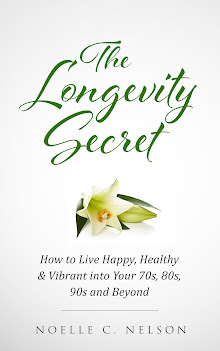Like most people, I assumed that Alzheimer’s was a terrible
affliction, all downsides and no upsides. I mean, really, what’s
wonderful about losing your memory, getting confused about people and
places, and forgetting how to do many of the ordinary activities of
life?
As I learned about Alzheimer’s, and came to know some people with dementia, my compassion, patience, and ability to love others regardless of their condition, increased. But never, in my wildest dreams, did I imagine how profoundly what I learned, not about Alzheimer’s, but from people with Alzheimer’s, would change my life for the better.
Let me explain: A friend of mine provides driving services to Alzheimer’s patients, taking them to their various appointments. One day, she was driving one of her charges, when the Alzheimer patient pointed out the window, and said, in a tone of utter amazement, “Look at the sky!” She was in awe of the beauty of the sky, her mouth hung open with appreciation and wonder at its majesty. And with that, my friend told me, she was jolted into really looking at the sky. Into appreciating it for the incredibleness that it is.
I mean, how often do you look at an ordinary sky - not a magnificent sunset or anything like that, just a sky - with awe? I didn’t! Not before I too was “jolted” into awareness. And I’m a big proponent of appreciating everything around us, but the sky? It’s just there. Not so, for the Alzheimer patient. For her, the sky was a new and astounding discovery every day. Frequently, on their drives together, the patient would point to something—the sky, a bird, a tree—and with that same tone of amazement, she would see it, observe it, appreciate it for the wonder that it really is, and as if for the very first time. Which for her, in a certain way, it probably was.
Then there’s the music minister at my church, who shared with us a story about his father with Alzheimer’s. His father had steadfastly maintained, all through the years that our music minister led a choir, that he couldn’t sing, and therefore wouldn’t sing, even though his son was convinced his dad could, if he’d just try it. Well, once his father was diagnosed with Alzheimer’s, he forgot that he didn’t know how to sing. So he stepped right up into the choir and sang. Full voice, and very well at that. When his son commented how well his dad sang, and how terrific it was, his father announced rather indignantly that he couldn’t sing and he certainly would never do such a thing. Which didn’t stop him from joining the choir on the next occasion.
Here are the life-changing tips I learned from Alzheimer’s patients:
1. See everything as if for the first time.
I don’t care if it’s the sky, your dog, your significant other, your child, your pancakes, your feet. Look at whatever it is and be in awe of its existence. Of what it means to have such a person/thing in your life. Of its beauty, its value to you, and the downright miraculousness of its being. You will enjoy everything in your life so much more. I guarantee it.
2. Forget that you don’t know how to do something.
If you “forget”
your shortcomings, what you’ve always told yourself you couldn’t do—you
may just find out that you are capable of far more than you ever
thought. So “forget it” as in, “Yeah, I used to think I couldn’t bowl,
but you know what? Forget that! Sure. I’d love to go bowling with you!”
There’s so much everyone on the planet has to share, however improbable it may seem at first. I am ever grateful to these Alzheimer patients for showing me how to “forget” that I don’t know how to do something and go for it, instead of being woeful about it, or a defeatist. And while I’m at it, to look at my world, my friends, myself with new eyes.
They taught me to appreciate the marvel that is every bit of our world i, ourselves included, and enjoy the astonishing, eye-popping, ever-engaging wonder of it all.





No comments:
Post a Comment